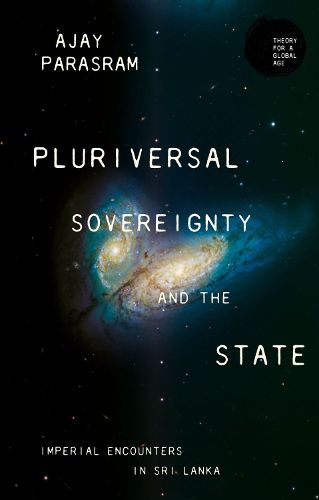Readings Newsletter
Become a Readings Member to make your shopping experience even easier.
Sign in or sign up for free!
You’re not far away from qualifying for FREE standard shipping within Australia
You’ve qualified for FREE standard shipping within Australia
The cart is loading…






Presenting a case study of British colonial rule and its aftermath in Sri Lanka, this book explores the collision of competing ontologies in the making of the modern state system.
It develops a decolonial theoretical framework informed by the idea of a 'pluriverse' to reveal the empirical and imperial avenues through which the idea of the modern/colonial state became normalised in Ceylon. The book contributes to three areas of scholarly discussion: the politics of ontology as related to sovereignty, postcolonial and decolonial international relations, and globalisation through the colonial encounter. It argues that in order to understand contemporary postcolonial crises rooted in territorial conflicts, we must first understand the historical and conceptual processes that depoliticised and universalised the norm of 'total territorial rule' rather than treating the modern state as a territorial and developmental inevitability.
$9.00 standard shipping within Australia
FREE standard shipping within Australia for orders over $100.00
Express & International shipping calculated at checkout
Presenting a case study of British colonial rule and its aftermath in Sri Lanka, this book explores the collision of competing ontologies in the making of the modern state system.
It develops a decolonial theoretical framework informed by the idea of a 'pluriverse' to reveal the empirical and imperial avenues through which the idea of the modern/colonial state became normalised in Ceylon. The book contributes to three areas of scholarly discussion: the politics of ontology as related to sovereignty, postcolonial and decolonial international relations, and globalisation through the colonial encounter. It argues that in order to understand contemporary postcolonial crises rooted in territorial conflicts, we must first understand the historical and conceptual processes that depoliticised and universalised the norm of 'total territorial rule' rather than treating the modern state as a territorial and developmental inevitability.